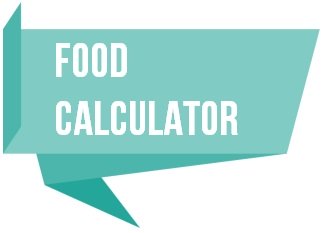White Beans, Raw, Nutrition Facts
| Name | Amount | Unit |
| Water | 11.3 | g |
| Energy | 333 | kcal |
| Energy | 1390 | kJ |
| Protein | 23.4 | g |
| Total lipid (fat) | 0.85 | g |
| Ash | 4.2 | g |
| Carbohydrate, by difference | 60.3 | g |
| Fiber, total dietary | 15.2 | g |
| Sugars, total including NLEA | 2.11 | g |
| Calcium, Ca | 240 | mg |
| Iron, Fe | 10.4 | mg |
| Magnesium, Mg | 190 | mg |
| Phosphorus, P | 301 | mg |
| Potassium, K | 1800 | mg |
| Sodium, Na | 16 | mg |
| Zinc, Zn | 3.67 | mg |
| Copper, Cu | 0.984 | mg |
| Manganese, Mn | 1.8 | mg |
| Selenium, Se | 12.8 | µg |
| Vitamin C, total ascorbic acid | 0 | mg |
| Thiamin | 0.437 | mg |
| Riboflavin | 0.146 | mg |
| Niacin | 0.479 | mg |
| Pantothenic acid | 0.732 | mg |
| Vitamin B-6 | 0.318 | mg |
| Folate, total | 388 | µg |
| Folic acid | 0 | µg |
| Folate, food | 388 | µg |
| Folate, DFE | 388 | µg |
| Choline, total | 66.2 | mg |
| Vitamin B-12 | 0 | µg |
| Vitamin B-12, added | 0 | µg |
| Vitamin A, RAE | 0 | µg |
| Retinol | 0 | µg |
| Carotene, beta | 0 | µg |
| Carotene, alpha | 0 | µg |
| Cryptoxanthin, beta | 0 | µg |
| Vitamin A, IU | 0 | IU |
| Lycopene | 0 | µg |
| Lutein + zeaxanthin | 0 | µg |
| Vitamin E (alpha-tocopherol) | 0.21 | mg |
| Vitamin E, added | 0 | mg |
| Vitamin D (D2 + D3), International Units | 0 | IU |
| Vitamin D (D2 + D3) | 0 | µg |
| Vitamin K (phylloquinone) | 5.6 | µg |
| Fatty acids, total saturated | 0.219 | g |
| SFA 4:0 | 0 | g |
| SFA 6:0 | 0 | g |
| SFA 8:0 | 0 | g |
| SFA 10:0 | 0 | g |
| SFA 12:0 | 0 | g |
| SFA 14:0 | 0.001 | g |
| SFA 16:0 | 0.205 | g |
| SFA 18:0 | 0.013 | g |
| Fatty acids, total monounsaturated | 0.074 | g |
| MUFA 16:1 | 0 | g |
| MUFA 18:1 | 0.074 | g |
| MUFA 20:1 | 0 | g |
| MUFA 22:1 | 0 | g |
| Fatty acids, total polyunsaturated | 0.364 | g |
| PUFA 18:2 | 0.198 | g |
| PUFA 18:3 | 0.166 | g |
| PUFA 18:4 | 0 | g |
| PUFA 20:4 | 0 | g |
| PUFA 2:5 n-3 (EPA) | 0 | g |
| PUFA 22:5 n-3 (DPA) | 0 | g |
| PUFA 22:6 n-3 (DHA) | 0 | g |
| Fatty acids, total trans | 0 | g |
| Cholesterol | 0 | mg |
| Tryptophan | 0.277 | g |
| Threonine | 0.983 | g |
| Isoleucine | 1.03 | g |
| Leucine | 1.86 | g |
| Lysine | 1.6 | g |
| Methionine | 0.351 | g |
| Cystine | 0.254 | g |
| Phenylalanine | 1.26 | g |
| Tyrosine | 0.658 | g |
| Valine | 1.22 | g |
| Arginine | 1.45 | g |
| Histidine | 0.65 | g |
| Alanine | 0.979 | g |
| Aspartic acid | 2.82 | g |
| Glutamic acid | 3.56 | g |
| Glycine | 0.912 | g |
| Proline | 0.99 | g |
| Serine | 1.27 | g |
| Alcohol, ethyl | 0 | g |
| Caffeine | 0 | mg |
| Theobromine | 0 | mg |
The nutrition facts are provided by the United States Department of Agriculture for White Beans, (100 g). www.usda.gov
White beans are a type of legume that are widely used in many different cuisines around the world. They are small, oval-shaped beans that are creamy white in color and have a mild, nutty flavor. White beans are a staple food in many countries and are often used in soups, stews, salads, and side dishes.
When it comes to nutrition, raw white beans are a good source of several important nutrients. One cup of raw white beans contains approximately 333 calories and provides a significant amount of fiber, with approximately 19 grams per cup.
Raw white beans are also a rich source of protein, with approximately 23 grams per cup. Protein is an essential nutrient that is used by the body to build and repair tissues, produce hormones and enzymes, and support immune function. Additionally, white beans are a good source of vitamins and minerals, including iron, potassium, and magnesium.
In terms of calorie content, raw white beans are relatively high in calories compared to some other legumes and vegetables. However, because white beans are also high in fiber and protein, they can help to keep you feeling full and satisfied for longer, which can help to prevent overeating and promote weight loss.
Overall, raw white beans are a nutritious and versatile food that offer a range of health benefits.

